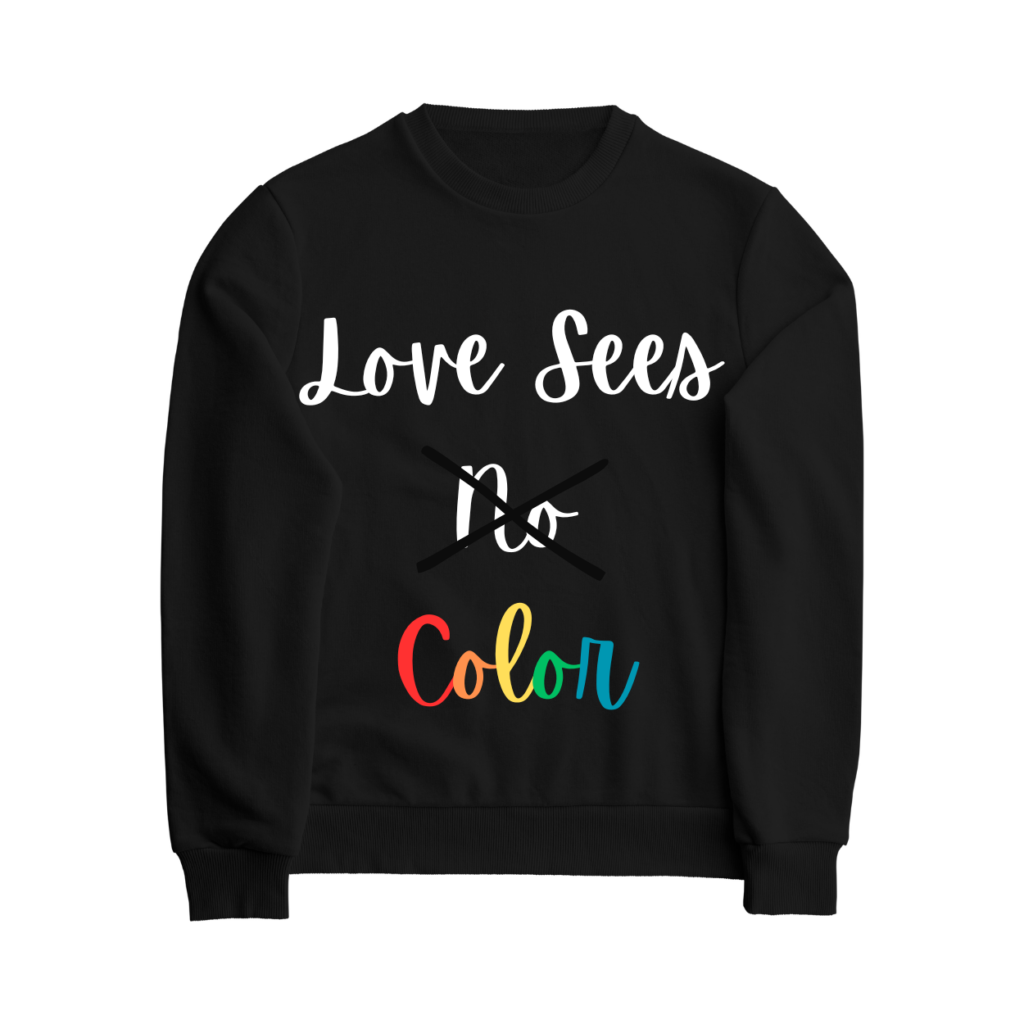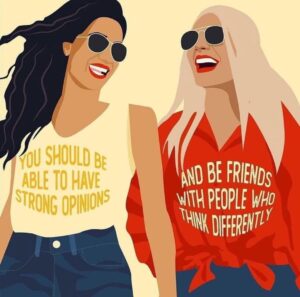

When Love Sees Color
Back when I was in college in the 90’s, there was a t-shirt/sweatshirt that I saw people wearing that said “Love Sees No Color.” Proponents of this concept believe in a colorblind society that has no regard for the color of someone’s skin and can only see the internal qualities of that person. I used to cringe every time I saw that shirt. While I love the sentiment of appreciating people for their inner beauty and character, I take umbrage with the idea that we don’t see what we clearly see. Applying color blindness to your social construct means there is something you are choosing not to see. The Love Sees No Color clan will tell you they have no biases; I welcome them to take an implicit bias test and get a new shirt displaying those results.
This fairy-tale land of colorblindness reached new heights when Obama was elected President of the United States. We began to have conversations of living in a post-racial society because a black man became ‘leader of the free world.’ And yet here we are ushering in a second Trump presidency where political pundits will swear it was the price of eggs that got him re-elected. We have been and continue to be in the throes of an insidious collective consciousness that denies the existence and effects of racism. The people I have grown more and more concerned with contributing to this proliferation are content creators. Their reach is vast and I fear many of us may condone subtle moments of anti-blackness for the sake of being entertained.
When love sees no color through jokes
Just a couple of months ago, I felt compelled to write about an incident where Andrew Schulz claimed to be making a joke about black women that many others, including myself, found to be anti-black at its core. In response to the backlash, he said, “In my opinion, everyone gets these jokes. Once there’s a protected group, it either means we think more or less of that group than everybody else. And I don’t feel that way.”. But if that were true, why on Beyonce’s internet did he engage in comparisons? Why ask the black male guests if they prefer black women or white women? Why when he asks the guests to name women that they think are hot would he have a problem with the black man answering Meg Thee Stallion?
It’s crazy-making as a black woman to feel disregarded and be disrespected only to be told “Well, that’s not what I meant. That’s not what I see. That’s not who I am.” Either he is willfully ignorant or he is playing in our face. And if it’s the latter, he will continue to be checked.
There’s so much talk about whether the line in Kendrick Lamar’s wacced out murals was about Schulz. Technically, it is not. Kendrick may be referencing Schulz as the white comedian but Kendrick is speaking directly to the black people Schulz surrounds himself with.
When Kanye famously said that slavery was a choice, if his free thinking were coherent, what he meant to say was it must have been horrifying to exist within a system that dehumanizes and subjugates you and you don’t know how to free yourself from it. The system has changed but we find ourselves existing in a very similar dynamic. However, unlike our ancestors, we have agency. We don’t have to play along. We don’t have to play nice. We have the ability to establish the rules of engagement. And in so doing, they see us a little more clearly.
When we love sees no color through dancing
There is a TikToker who goes by the name of ladyintgebathroom (yes, with a g). Her content consists of spot-on lip syncing and dancing to a variety of songs, many of them in the hip hop/R&B genre. Some people, including myself, assumed she was down with the culture because she was ten toes down with the music. Cue the record scratch in my head when she reposted multiple posts/comments from Trump supporters. Many black folks posted their own content explaining the math of singing and dancing to black music plus Donald Trump equals cultural appropriation. It’s the counter-response to this thought from other black people that worries me; they deny the possibility of cultural appropriation stating hip-hop/R&B is not “our” music; the music is for everyone. While it is true that the music is available for everyone to listen, it is equally true that the creators of the music she uses for her content are black. Many of us have concerns about Trump enacting policies that promote anti-blackness. (To be clear, when I say us, I mean this percentage of us as stated by NPR: 89% of black women and 74% of black men.)
During Trump’s last presidency, he criminalized BLM protestors but supported those who participated in the Charlottesville hate parade. When he says Make America Great Again, he demonstrates what he means by the people he puts in power. His past and present cabinets are predominantly white men; his hiring perpetuates privilege for them while we watch from the seats of meritocracy.


The lady in the bathroom re-posted this graphic on Facebook that shows two women, one wearing shirts that combined say “You should be able to have strong opinions and be friends with people who think differently.” But differences do matter in friendships. How ironic that they’re both smiling while hiding behind their shades. To this meme, I reply with the words of James Baldwin: “We can disagree and still love each other, unless your disagreement is rooted in my oppression and denial of my humanity and right to exist.” We may never get to this conversation with the lady in the bathroom because we suffice to watch her dance all our cares away. So, while we’re busy telling people our music is for everyone, let us engage that same energy in discovering if people are truly for us.
The lesson of the day for me is that we, as black people, need to be conscious and careful of what we entertain. Let us recognize the spirit that is underneath the amusement. Let us discern when we have judged a book by its cover and not its content. May we not numb ourselves at the expense of upholding and affirming one another. Asé!
